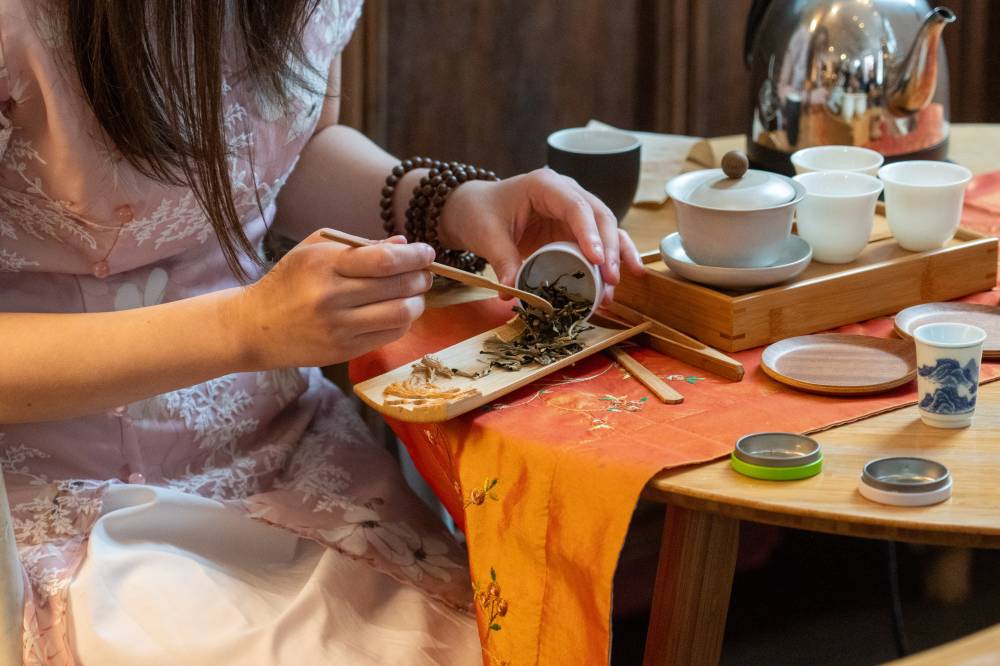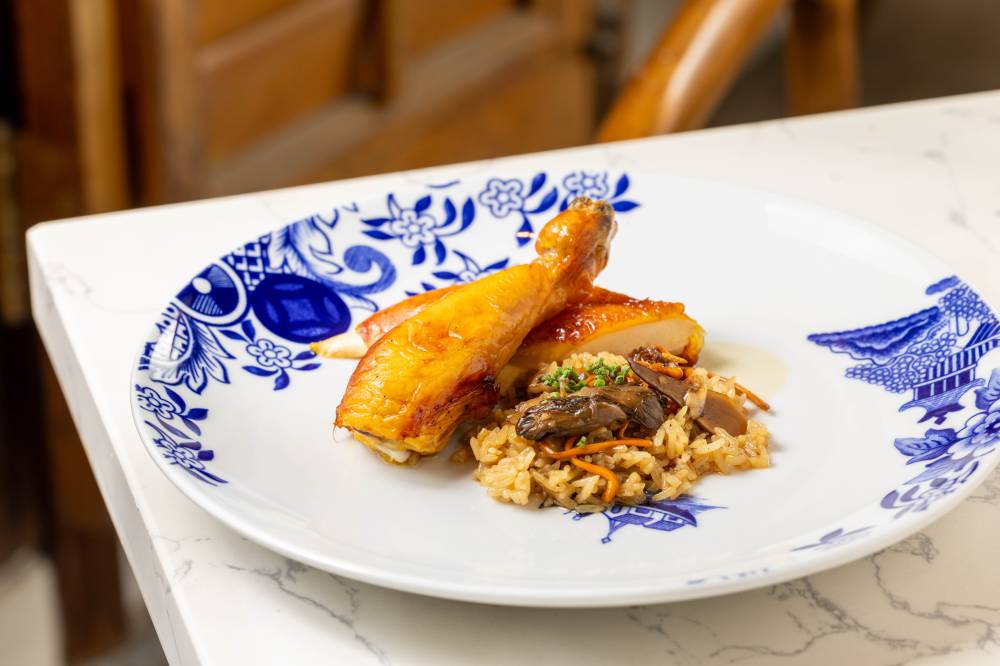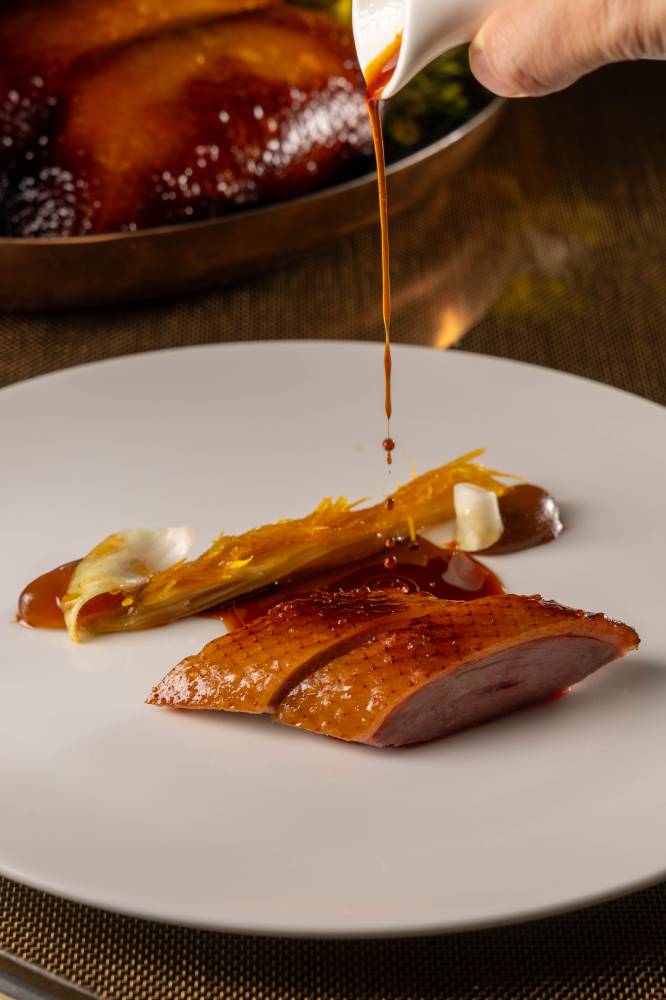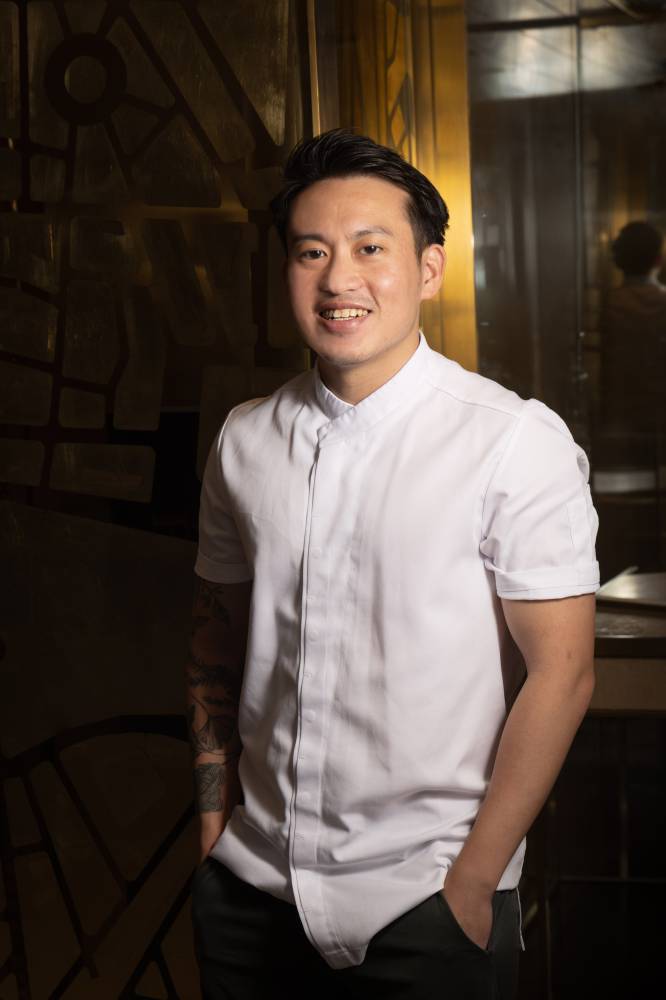Hong Kong really does let you taste the best of all worlds

One of Hong Kong’s most iconic landmarks is The Peak, rising up to 1,811 feet to showcase magnificent views of the city’s world-famous skyline. But coming close to the heights it affords travelers is another peak of Hong Kong’s power: its phenomenal dining scene.
At the heart of Hong Kong’s beating culinary heart is integrity. The quality of ingredients. The authenticity of the narratives chefs portray. The presentation. Hong Kong has always had a way with food.
Visit after visit, the city exhibits its evolution. Letting tourists partake in the consistency is so important in sustaining a memorable dining experience. Trust Hong Kong to sell a feeling that will never go away. This belief seeps through the streets and the sky-high rooftops, the hidden gems in corporate buildings, to spectacular festivals of wining and dining.
This is Hong Kong’s power: the confidence in mapping out a culinary spectacle built on the idea of making everyone part of the city. It’s also what key establishments and events possess. Let’s dissect what makes them stand out in a category of their own.
Build Asia’s most global gastronomy festival
Perhaps Hong Kong’s most recognizable signature gastronomy event is the annual Hong Kong Wine and Dine Festival, organized by the Hong Kong Tourism Board. This year, the four-day event, fueled by over 300 food and wine booths, catered to around 163,000 attendees from the Chinese Mainland, the US, Canada, the UK, Australia, Germany, Japan, South Korea, Southeast Asia, and visitors from a total of more than 30 countries and regions.
Compared to last year, the 2025 edition saw an increase of more than 30 percent for average daily visits, resulting in a 40 to 50 percent sales improvement experienced by merchants. The extended hours (up to midnight) may have contributed to the growth, but another important note to Wine and Dine 2025’s success is that it simply doesn’t hold back on anything.
There was a diverse range of food and drink choices and immersive experiences that allowed visitors to engage with the winemakers and producers themselves (particularly at the EA Grand Wine Pavilion, where masterclass tastings were also held), the remarkable chefs behind Michelin stars and award-winning distinctions such as Alvin Leung and Marc Mantovani at the Towngas Gourmet Avenue, as well as fellow festival-goers who participated.
“The Wine and Dine Festival further solidifies Hong Kong’s status as a ‘city of gastronomy’ while also boosting the overall consumption atmosphere. Moreover, it allows residents and visitors to rediscover the vibrant charm of Hong Kong’s nightlife, fully leveraging the economic benefits of mega events,” says Rossana Law, Secretary for Culture, Sports and Tourism.
As the festival continues to get bigger, so do expectations in the coming years. But the Hong Kong Tourism Board (HKTB) is laser-focused. “HKTB will continue to build on this momentum to present more exciting events in the future,” says HKTB chair Dr. Peter Lam.
Incomparably innovative
The allure of Hong Kong is that there is always something for everybody. At present, there are 204 Michelin-recognized establishments—seven holding three stars, 11 with two stars, 56 with one star, and 64 and 66 with Bib Gourmand and Selected recognitions, respectively—leading the dining scene of around 17,000 licensed restaurants.
And one of the figures at the forefront is a “demon” chef with an “extreme” brand of Chinese cuisine, yet still rooted in comfort: Alvin Leung. “Taste is king or queen, it’s always been my philosophy,” says the celebrity chef and “Masterchef Canada” judge. Granted, innovation is just as important in distinguishing oneself among other equally talented chefs.
Among Leung’s several restaurants, his two Michelin-star restaurant Bo Innovation (previously also held 3 stars), is where his artistic license swirls as he walks guests through a surprise-filled tasting menu experience. Still based on Leung’s innovative ethos, his latest venture, Cafe Bau, which opened in March 2023 at Wan Chai, is another standout. It now tells its food stories in collaboration with the Lubuds Group at Luma in 1881 Heritage.

Cafe Bau’s veneration for its farm-to-table concept unravels in casual dishes like a jerky-like dried aged beef salad, a springy seafood fusilli lunghi bucati (whose rich tomato sauce drenches the luscious scallops, shrimps, and squid), and a cool sweet potato puff stem that’s equal parts citrusy and coconutty with a candied ginger surprise. But it’s on the Hung Wan Farm Ping Yuen chicken served with morels, black termite mushrooms, and Yi-O rice from Lantau Island that Leung’s respect for local ingredients shines through. These birds are raised near the Ping Yuen River and yield crispy, golden skin and juicy meat that excellently showcase what shifting toward locally grown or raised food products looks like.
There is, however, a drip of defiance Leung wants to get across with his restaurants: “The truth is, I don’t like to be compared. I don’t need to be compared and I think the same of Hong Kong,” he says. “It’s very unique.”

Consistent command of French and Asian craft
To try and encapsulate Hong Kong’s gastronomy in detail is a staggeringly difficult feat, but over the course of seven dishes in Epure’s lunch menu, a standout aged rice duck sourced from Guangdong, China, makes it easier to do.
Sitting in the dry-aging cabinet for 21 days to extract the water out of the local fowl, the roasted meat ends up with more flavor, juicier sans oil, and a more golden brown sheen on the crisp skin than it could ever possibly have been. On its own, the duck is an honest comparison to the pure pleasure of Hong Kong’s grassroots food scene but assembled with a bright timut pepper sauce, French orange, and aged tangerine purée, it induces emotional reactions out of anyone in a manner that references visitors’ responses from the range of great global cuisine and chefs that have descended on and called Hong Kong home.
At the helm of shaping and delivering this divine dish and the rest of Epure’s French and Asian culinary expressions is Singaporean chef Aven Lau.

From idea to execution, Lau’s taste not only leans on his heritage, but also on the belief in constant evolution. “If you’re not evolving, you’re stuck in the past. It’s not about following trends but more about evolving yourself,” Lau says.
His succession of flavors at Epure feels more like acts of sharing, picking through what gives him joy, and paying vivid attention to detail to the point that the customer thrives on both the process behind his creations, as well as the creations themselves—as if directing his growth as a chef alongside where the consumer should be heading.
Though there is obviously no sign of sisig in the self-confessed sisig lover chef’s menu, Lau distills refined takes that have made Epure a consistent Michelin star awardee. There are plenty of encounters with seafood—sea urchin with artichoke and nori, a fresh and silky hamachi that pulsates with hints of jalapeño and shiso and a certain cheesy creaminess, and a delicious Maine scallop with a lip-smacking, slightly briny marinière sauce.
Elsewhere, his grilled foie gras atop an Asian slaw oozes with infectious fusion sensibilities as Lau seamlessly combines acidic tamarind and aromatic lemongrass, as well as toasted rice for some crunch on a buttery slab of foie gras. It’s a smart breath of fresh air in between the proteins of the sea that signifies the excellent landscape Lau has intentionally created from start to finish.
This is one of those dishes that doubles as a calling card for a chef of his caliber, aside of course from his Michelin stars. Yet while they are nice to have, accolades aren’t the sole measure of success or happiness.
“If you’re being awarded something, you’ll be happy, right? It’s just like a little pat on your back, and it’s also good for the business. But if you just continue thinking about it, it’s not healthy for yourself or for the team,” he says. “The most important [thing] is to be happy.”
Unique F&B experiences drive loyalty
Satisfaction, emotional attachment, and memorability in destinations are crucial indicators of revisit intention. Gastronomy undoubtedly plays a role in driving repeat visits and cultivating loyalty (as in the case of Filipinos considering Hong Kong as a rite of passage), but for it to be truly effective, tourists need to perceive the value and positive impacts of culinary experiences.
That said, Hong Kong’s F&B scene appears to have nailed the art of perfecting unique experiences that resonate with visitors.
Because when restaurants like Michelin-starred Duddell’s in Central with its luxurious Cantonese fare and goose pies; Skye Roofbar & Brasserie at The Park Lane Hong Kong and its signature Gloucester Road cocktail made with a hotel-exclusive PL50 gin; Buenos Aires Polo Club’s horse-inspired cocktails and hundreds of knives that could hold an audience; and LockCha Tea House’s tea beer flight give guests time to enjoy and reflect on every possible touchpoint to connect, it all makes a huge difference.
“What really makes it good for us is we’re just very hospitable and we’re open-minded to what people want,” say the handsome bartenders of the equally handsome Buenos Aires Polo Club.
Ultimately, these establishments confirm the comparisons between The Peak and Hong Kong gastronomy as one bears weight. The only difference is that you can scale the delicious heights of Hong Kong’s restaurants and find something new, no matter how high or low you go.





















